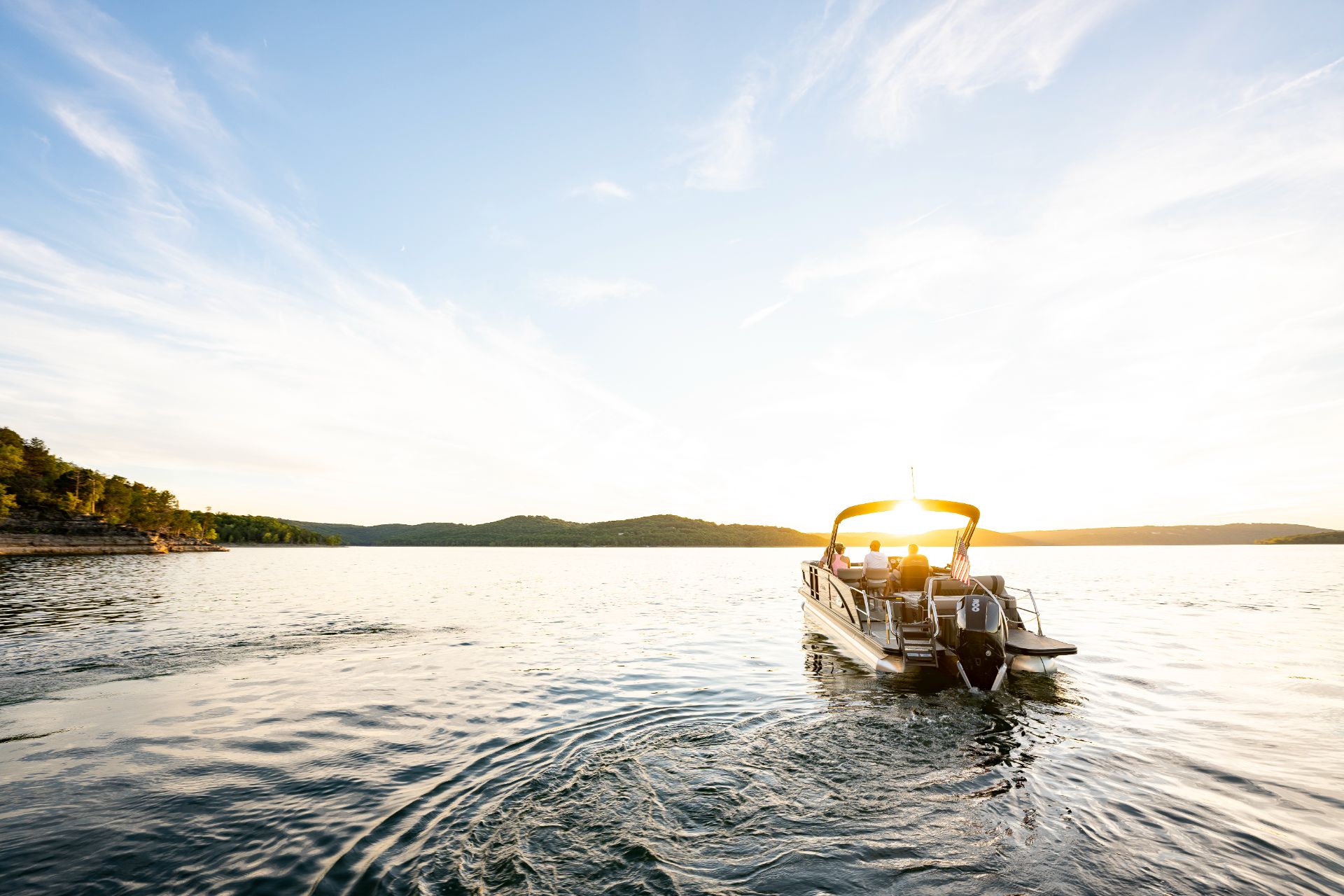How Much Does Boating Cost? (Top 7 Expenses)
As a lifelong boater, I can say with confidence that most people who step foot on a boat enjoy their time on the water. Boating is a lifestyle that has become increasingly popular over the last handful of years with a huge uptick in 2020.
I wonder why that could be. The desire to enjoy life outdoors and close to home drove many into boat ownership. It’s like a domino effect, your friend invites you on their boat and now you want one of your own.
As more people turn to boating than ever before, new and used boat sales have soared. According to the National Marine Manufacturers Association, outboard engines saw a record-breaking $3.6 billion in sales for 2022.
This type of engine can be found on just about any type of vessel, the most popular being pontoon boats. That said, it’s no secret that the lifestyle is coveted by families who want to spend time together.
If you’re part of this new wave of boaters, it’s important to know what to expect when it comes to the costs associated with boating. There are obvious expenses but if you’re not familiar with the lifestyle, there could be some surprises.
1. Buying the Boat
When I said “obvious expenses” this would be one of them. Purchasing the boat no matter how large or small, is going to be one of the biggest expenses you encounter. This will be determined by your needs and is not one size fits all.
Length, floorplan, trim level, horsepower, and other factors will all play a role in how much you’re going to spend. Whether you buy a used boat or order one through your dealer, it’s important to know the driving factors behind the cost of the boat.
Some of the less obvious costs when it comes to the boat itself are freight, prep, and taxes. Most dealers don’t include those items in the advertised price. There are many reasons for this but it’s good to be aware that those hidden fees exist.
Purchasing the boat itself is the most obvious expense, however, there are a few things that should be considered before you even decide on what type of boat you’re bringing home.
2. Upkeep and Maintenance
Regular upkeep and maintenance should be at the forefront of budgeting when you’re considering buying a boat. Keeping up with these things and taking care of your vessel properly will save you money and heartache in the long run.
This can be one of the largest expenses when it comes to boat ownership. Everything from cleaning the exterior and interior to regular engine maintenance will come with a price tag.
If you take care of the boat and properly service the engine, you will prevent bigger issues from arising as the boat ages. You shouldn’t wait for something to go wrong to schedule a service appointment. Not only will you preserve the lifespan of the boat, but you’ll also be a better partner to your servicing dealer.
It’s also important to remember that boats are man-made products and things will go wrong. Whether it was a user error or a factory defect, you should be prepared for common boating-related issues.
For example, did you know that the average life expectancy of a well-maintained boat battery is only five years? It’s good to know especially if you enjoy floating at the sandbar with your radio on all day.
Getting ahead of changing out your battery before it’s completely dead will save you the headache of finding a tow to shore. It’s things like this that you should be prepared to pay for to keep your boat running well. Doing so will also help you when you go to prep it for the water the following spring.
Winterization
Another aspect of maintenance that you should be prepared to pay for no matter where you live is winterization. Depending on who’s performing this service, it can be quite expensive.
Winterization is the process of preparing your boat for winter storage and in many cases, it’s the opportunity to perform annual maintenance that’s necessary to keep your pontoon running well throughout the boating season.
True this is most critical for those who live in areas that see freezing temps regularly. However, there are warmer states that may require boaters to prepare their engines for potential one-off freezes.
As far as pricing goes, there’s a lot that contributes to the total expense of winterization. As I mentioned, this is an opportune time to have annual maintenance such as an oil change performed. This is also the time to have anything fixed on your boat that may have broken over the summer.
Many times, winterization also includes cleaning the boat inside and out. For example, our dealer service center professionally cleans the toons on our pontoon boat during this process. That way the marine growth does not sit and cake on over the winter.
Another expense that contributes to prepping the boat for winter is where it’s going to sit. This will vary greatly and should be a huge consideration point before you buy the boat.
3. Storage Fees
Planning your storage strategy ahead of choosing which boat to buy is recommended. Make sure you find a spot that you’re comfortable with that has room for your future boat. Many times, dealers will offer winterization and storage.
If they don’t, it can be difficult to find a spot for your boat to sit over the winter. Large storage units that allow watercraft are a popular option. Keep in mind, however, not all boat storage has to be indoors. Most boats can be shrink-wrapped and parked outdoors.
If you go this route, you should expect to be charged for the service based on the length of the boat. This should only be done by a professional with the right equipment and pricing will vary depending on who you hire in your local area.
4. Pay to Park
Just as you have to pay to park your boat over the winter, there will be an expense to parking during boating season. If you plan on trailering your boat in and out each time you use it and park it on the trailer at your home, you are likely exempt from this expense.
The one expense you could incur from doing this is boat launch fees, however. There are some bodies of water where you will be charged to put your boat in at the ramp. This may not apply to your local lake but it’s something to be aware of if you plan to tow the boat and launch it in different areas.
If you are one of the lucky boaters who owns a lake home, you will likely park the boat at your dock. I don’t have to spell out what that expense entails.
If you don’t live on the water and want to keep your boat docked when not in use, you should consider finding a dock to rent. Many marinas will have dock rentals and many times you can find private rentals around the lake.
The next step in docking the boat is the decision to keep it in the water or park it on a boat lift. Depending on where your dock is located, a boat lift can keep your vessel safe from harm.
For example, if you live on a body of water that gets rough at any point whether it’s during a storm or a high-traffic weekend, a boat lift would be in your best interest. That’s because it will save the boat from slamming into the dock with every large wave.
Another perk of purchasing a boat lift is that it will keep the hull of the boat from soaking in the water and collecting marine growth that leads to discoloration.
Consider if you need a lift and start pricing them out once you start narrowing in on the type of boat you’re going to buy. The type of boat will be a factor in the price of the lift.
5. Transportation
Transporting the boat should be considered beforehand for many reasons including budget. First, if you plan on towing the boat yourself, can your tow vehicle pull the weight of the expected vessel?
Next, do you need to purchase a boat trailer or will you rent a trailer twice a year? If you plan on buying a trailer, check out this buying guide. This is preferred if you plan on buying a v- hull style boat.
If you’re going with a pontoon boat, many times marinas will have pontoon trailers for rent. That’s because a pontoon can be stored off of a trailer, the same is not true for a v hull.
If you plan on launching your pontoon boat in the spring and pulling it out in the fall, you may want to rent a trailer. Some marinas will have rentals you can use by the hour which is a great option if you plan to go this route.
Most dealerships and marine service centers do include transporting the boat if you plan on having them service and store it. So, to calculate this expense, figure out if you are towing the boat yourself or having your dealer do it for you.
If you’re the driver, decide what tow vehicle you need and if you plan on buying or renting a trailer. If you want your dealer to tow the boat, ask them ahead of time what their ballpark service costs are including towing.
6. Gear Up
Many times, the gear you need for a successful day on the water can go overlooked but it shouldn’t because it does add up. All items should be considered but some items are mandatory.
Start with safety equipment such as PFDs as those types of items will be the most important to purchase. When it comes to being safe and compliant on the water, you should do your research on what’s legally required to have onboard for the area in which you boat.
Safety gear can usually be purchased at your local dealership. If not, you can find such items online or at pro shops near you. This is true for most of the necessary gear you’ll need for boating.
Things such as dock lines and fenders should also be purchased upon taking delivery of the boat, if not before. They are necessary items that you shouldn’t be boating without. This is also the time to factor in any extras you might want.
Do you plan on taking the kids tubing or will you be learning how to surf behind a tow boat? All of these things can wrack up an expensive tab. Think through this before purchasing a boat.
7. Gas Money
You might think I’m joking here, but boats tend to guzzle gas. This is especially true for higher horsepower engines or if the captain enjoys cruising at a fast pace everywhere he/she goes.
From my experience, when you fill up on the water, boat gas is always much more expensive. If you fill up a gas can from the local gas station, you will take less of a hit financially.
I’ve been on tow boats that have two engines that wrack up an $800 bill every time they hit the marine for gas. That’s an extreme case as not everyone plans on buying a very large boat with two huge engines. Nonetheless, you should think ahead when it comes to the expense that is boat gas.
Pay to Play
As I mentioned, I’m a lifelong boater. I cannot remember a time when my family didn’t own a boat and now that I’m an adult, the same goes for me. Because of that, I can say that boats are a financial commitment.
Just like a house or car, you have to maintain a boat so that it will run as long as it possibly can. I’ve mostly had pontoon boats throughout my lifetime and from my experience, if you properly care for an outboard engine it will last for many years.
When budgeting for a new or used boat, use this list to communicate with your dealer and learn about their fees and pricing. Plugging that information into your budget will help you make sure there are no surprises after you purchase the boat.



